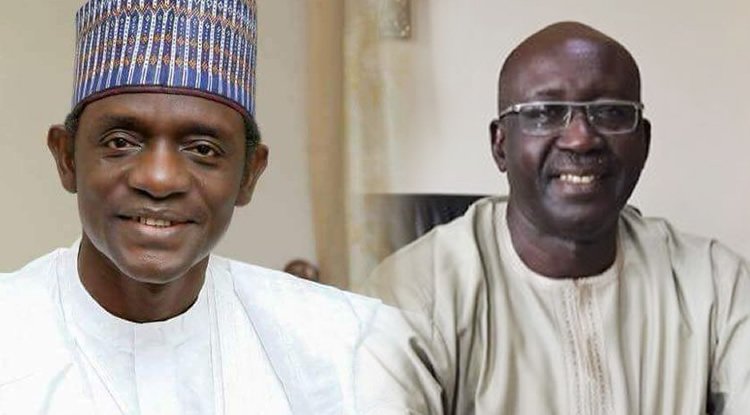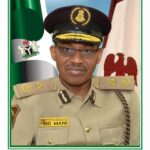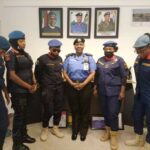
In this piece, LEKE BAIYEWU examines how the ruling All Progressives Congress and the opposition Peoples Democratic Party – Nigeria’s biggest political parties – will determine which zone or region of the country should produce the next president in 2023
All eyes are on the political parties, especially the ruling All Progressives Congress and the biggest opposition party, the Peoples Democratic Party, as Nigerians get set for the general elections in 2023. Being a multi-ethnic and multi-religious country, the electorate are waiting for the parties to come out clear on which region – North or South – is the presidency going next. Within the regional agreement, the zones, especially in the South, are also agitating for the coveted presidential seat.
Political historians have noted that out of the six geopolitical zones, only the South-East has yet to produce the president. Others, i.e. North-West, North-Central, North-East, South-West and South-South have had at least a shot, either as a democratically elected president or a military head of state. According to the pundits, this is arguably why the cry of marginalisation is now loudest in the South-East.
From 1999, the South appears to have spent a longer time in power than the North. The Fourth Republic began with Olusegun Obasanjo (South-West) as President for two tenure of four years each, from 1999 to 2007. Obasanjo was succeeded by Umaru Yar’Adua (North-West) from 2017 to 2010 when he died in office. The then Vice President, Goodluck Jonathan (South-South), assumed office and completed Yar’Adua’s first tenure in 2011. Amidst protests from the North and after a long negotiation, Jonathan contested for the Presidency in 2011 and won. The protests were from those who felt that Yar’Adua did not complete a term and ought to have two – for the North. Jonathan again sought a second term at the poll in 2015 but lost to the incumbent President, Major General Muhammadu Buhari (retd.), from the North-West.
Cumulatively, in the almost 23 years of Nigeria’s return to democracy, the South has had approximately 13 years, while the North will be having 11 years by the time Buhari’s second term ends in 2023. Since 1999 to date, only the PDP and the APC have produced presidents. Within the period under review, the PDP, through Obasanjo, Yar’Adua and Jonathan spent 16 years, while the APC would have spent eight years by next year. From all indications, the two parties have remained dominant in Nigeria’s political space, the reason why they bear the burden of expectations from the voting population.
Ahead of the next presidential elections, socio-political, ethno-religious and cultural groups are already clamouring for power, with some dismissing the zoning arrangement. For instance, state governors in the South have met at regional and zonal levels and resolved that power must shift to the South in 2023, a demand that the North has criticised as illegal. Several northern bodies like the Arewa Consultative Forum and the Northern Elders’ Forum have separately and on different occasions asked the governors and other stakeholders to rather lobby for the presidency, saying the race should be thrown open. Even a former governor of Kano State and ex-minister of Defence, Rabiu Kwankwaso, from the North-West, recently faulted rotational presidency, declaring that he was already consulting stakeholders on his presidential ambition. Former Vice-President Atiku Abubakar, a serial presidential aspirant from the North-East, who has yet to officially declare his bid this time, may also run for the office.
Indeed, some legal practitioners have stated that zoning of power does not exist in the Constitution but was only an intra-party plan introduced by the PDP. The proponents of zoning have, however, argued that it is a way of ensuring fairness and equity in the polity, giving each zone a sense of belonging.
Already, the PDP has zoned its national chairmanship to the North – North-Central precisely, with Senator Iyorchia Ayu emerging the occupant of the office at the party’s elective national convention last year. Close watchers of the PDP have said the party has a tradition of alternating its chairmanship and presidential offices to different zones. Now that its chairman is from the North, its presidential candidate should come from the South, they said.
Similarly, the leadership of the APC is said to be considering zoning its national chairmanship to the North (North-Central) while the other positions in its National Working Committee that were occupied by northerners in the last committee chaired by Adams Oshiomhole, would be given to southerners, and vice versa. Again, public offices such as the presidential, vice-presidential and National Assembly leadership seats are also to be allocated to regions and zones.
The Caretaker/Extra-Ordinary Convention Planning Committee of the APC has, however, said it will announce its zoning arrangements ahead of the party’s first national convention scheduled for February 26, 2022. “But we have yet to meet it,” the Secretary of the APC CECPC, Senator John Akpanudoedehe, told our correspondent.
The immediate past National Publicity Secretary of the PDP, Kola Ologbondiyan, noted that the zoning and rotation of power was introduced based on the mood of the country and the current realities as of the time. According to him, the present-day realities may lead to changes in the arrangement. Ologbondiyan said, “It is for the purpose of unity, equity, fairness and justice in the country. That was why the drafters of the PDP’s constitution, I believe, put that in the constitution of the party.”
Speaking on the argument of not placing zoning over competence, the former PDP spokesman stated, “It is a new thought. If you remember, the constitution of the party was written over 20 years ago and it served the purpose of that generation. If the new generation of Nigerians believes that what they require is competence, I believe that they should be listened to. But you can find competence in different people all over the world; so, I don’t think that competence is dependent on a particular region or zone. Whichever direction the party believes that it should pick its candidate from, competence should be a major consideration.”
When asked if it was automatic or compulsory for the president to emerge from the North if the national chairman of the PDP was from the South or vice versa, Ologbondiyan said, “All these are a function of the exigencies in the party, they are not carved in stone; it bothers on the exigencies of the party. What is the mood of the party? What is the mood of the nation? These are the parameters that will be used. What is essential is what will give us peace, unity, putting our nation together in a stronger form than what the APC has bequeathed to the country.”
In his submission, a Professor in the Department of Political Science, University of Abuja, Saleh Dauda, dismissed the argument by those who say competence should take priority over the ethnic and regional considerations. According to him, there are credible and competent Nigerians across the zones.
Dauda said, “Zoning is the appropriate thing to do in a plural society like Nigeria, and considering the level of our development. To maintain a delicate balance in a country where the polity is fragile, there is a need to adopt a zoning system where people will feel a sense of belonging. People will feel that they have a stake in the Nigerian project. Competence and integrity can be located in every part of this country. So, for the sake of unity and equity and fairness, zoning should be adopted and adhered to. There are many instances and circumstances in our polity that are not written in our Constitution but if we want to promote national unity, I think it (zoning) should be encouraged.”
When asked if the right of presidential aspirants from the North who are seeking to succeed Buhari would not be infringed upon due to zoning, the political scientist said, “Considering the level of our development, you are to come out and contest but let there be a common understanding that for this country to work perfectly well, there should be zoning.”
Meanwhile, the Chairman of Northern Elders’ Council, Tanko Yakassai, stated that zoning of public and party offices predated the PDP and the current Fourth Republic that began in 1999, noting that it had been in existence since the defunct Second Republic. The former Liaison Officer to the then President, Alhaji Shehu Shagari, also stated that participation in politics and electoral process was superior to the competence of those to be elected into public offices.
Yakassai, who is a founding member of Arewa Consultative Forum, said, “Election is wholly and essentially about people’s participation. People should be given the opportunity to elect their leaders and people should be allowed to produce leaders that will rule their country. It is after that that you come to the issue of competence. So, zoning is related to the ability of the people to elect their own leaders by themselves.”
Going down the memory lane, the elder statesman said, “I will give you a brief history of zoning. The idea of zoning in Nigerian politics was first introduced by the (defunct) National Party of Nigeria – NPN – during the Second Republic. At that time, the intention was to make sure that every section of Nigeria is given a sense of belonging in composing the government that was going to be formed after the military (rule). So, the NPN decided that the presidential candidate should come from the North and the running mate should come from the East. At that time, we had three or four regions. Then the national chairman of the party should come from the West and the President of the Senate should come from the minority in the East or the South…that includes the Midwest. And the Speaker of the House of Representatives should come from the minority in the North. That was the history.”
Yakassai further added, “That desire is still relevant in Nigeria today. Everybody will like to participate in the governance. That is the reason why the struggle for political positions or offices became almost a matter of life and death. So, what comes first is the participation; second is the issue of competence.”
However, President of the Arewa Youth Consultative Forum, Yerima Shettima, said zoning or power rotation was no longer important, alleging that the PDP, which introduced the formula, had since dumped it.
When asked if it would be fair to have presidential aspirants from the North seeking to succeed Buhari in 2023, Shettima said, “We run a constitutional democracy and if it is a constitutional democracy, all these things are stipulated. It is only on moral ground, and moral ground cannot be taken to be biding or legal. If that is the case, let us practise true democracy. Whether zoning or not zoning, as long as it is not a legal deal, it cannot be binding on anybody. Let competence take the lead.”
When asked if power rotation should consequently be dismissed from the process entirely, Shettima said, “It has been jettisoned since; zoning does not exist as far as Nigeria is concerned today. Even those who agreed on the arrangement of zoning at some points, as a party with the President of this country in 2011, should not have contested if zoning was well respected. If that agreement still remained an agreement, Jonathan should not have contested in 2011. So, it has been jettisoned.”
Though a list emerged on Wednesday (January 26, 2022) on a purported zoning of offices allegedly announced by the Chairman of the Caretaker/Extraordinary Convention Planning Committee, Mai Mala Buni, such information relating to not only the zoning of the presidency, but other sensitive positions like the Vice President, Senate President and others had since been dismissed by Buni, who described it as a figment of the author’s imagination.
However, one thing is clear, as the northern and southern regions continue to wait for the verdicts of the two major political parties (the APC and PDP), many politicians continue to show interest in the presidency ahead of the 2023 general elections with more aspirants coming from the South-West and the South-East.
Copyright PUNCH.
All rights reserved. This material, and other digital content on this website, may not be reproduced, published, broadcast, rewritten or redistributed in whole or in part without prior express written permission from PUNCH.
Contact: [email protected]





